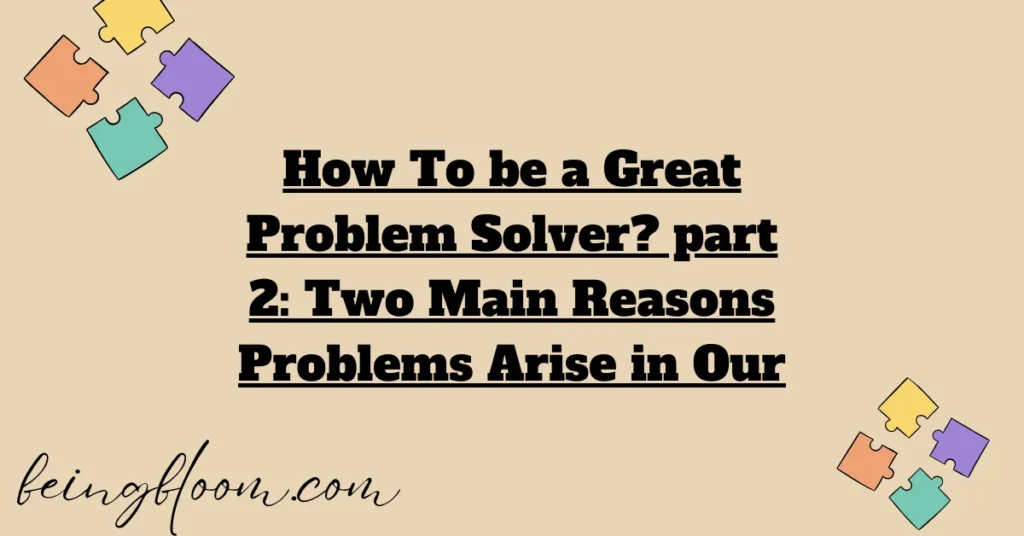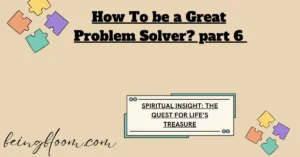
1) We Are Never Completely Right (The Internal Error)
No matter how perfect or correct we believe ourselves to be, the truth is often quite different. Thinking “I’m always right” is like living in the dark. The reality is—we are constantly making mistakes. Even if we manage to be 50% right in a day, most of our financial and personal problems would begin to fade away. If we were always right, sadness would vanish from our lives. We’d achieve wealth, find the perfect partner, enjoy good physical and mental health, reach our goals quickly, and succeed effortlessly in business or jobs. We’d always be cheerful, excited, and fulfilled. If that were the case, we’d be no less than divine beings.
But here’s the truth many people resist accepting: We make mistakes every moment. That resistance is dangerous because it prevents us from taking responsibility for our actions. But the moment we acknowledge that “I could be wrong at any moment,” our chances of reducing those mistakes significantly increase. From the moment we wake up to the moment we fall asleep, we make countless small, unconscious errors. For example, waking up late or wasting time on our phones right after waking. One of today’s biggest mistakes happens the moment we open our eyes—we check our phones. The emotional impact of whatever we consume online in those first moments sets the tone for the entire day, whether it’s positive or negative. And more often than not, it’s negative. Even the positive content we consume gets twisted into something negative over time. Why? Because the internet keeps feeding us what it thinks we want—often meaningless or shallow content. Whether it’s videos about teenage breakups or over-the-top influencers, it’s mostly noise. Even if you avoid that kind of content, there’s always WhatsApp statuses waiting to fill the gap: One person posts, “Living in poverty is beautiful,” while another says, “Money can buy everything.” Some turn into part-time philosophers posting, “Poor people have the biggest hearts,” while their actual lives may be a mess. When we allow ourselves to be emotionally swayed by such random content first thing in the morning, we spend the rest of the day mentally scattered and directionless.
Why Do We Keep Making Mistakes?
It’s not just how we make mistakes, but why we constantly make them that matters. The answer is simple: our goals, beliefs, desires, and values are deeply flawed. Most of the time, our desires and thoughts are not grounded in reality or science—they’re impulsive, illogical, or self-deceiving. This throws off our priorities. We might be aware of what we’re doing and how we’re doing it, but we often have no idea what we should be doing. Everything we do is driven by the urge for instant gratification—and this urge quietly erodes our goals, beliefs, and values.
If your goal is to gain fame, status, or social approval, then no matter what you’re doing—whether it’s applying for a government job, starting a business, or playing sports—your core motive will always be vanity, not passion. But if your values are rooted in service, love, or growth, they positively shape your life over the long term. When you view a job or a career through a lens of purpose, not prestige, life becomes more meaningful and sustainable. Think about which of these two approaches would help you endure suffering better.
Ultimately, it all comes down to your goals, values, beliefs, and desires. If you’re only working for survival without any meaningful purpose, you’re bound to experience constant dissatisfaction. Every result has a cause. And the root cause of flawed goals and values lies in two core issues:
1. The desire for instant gratificatio
2. The ego
These two things ruin the course of our lives. Most people’s actions are governed by them. They wake up late, scroll aimlessly, gamble online, or consume harmful substances like alcohol or cigarettes—all in pursuit of quick dopamine hits. And to satisfy their ego, they make grand statements about doing something big, but never actually do anything. They crave attention, praise, and respect from others. They even enjoy criticizing people or being rude just to feel powerful. On the flip side, if we start desiring long-lasting happiness instead of instant pleasure, and if we learn to set our ego aside, we’ll stop wasting time on our phones and instead use them to learn or grow. We’ll choose nourishing food over junk, take real action instead of bragging, and stop expecting praise or recognition from others. We’ll also quit the habit of blaming or belittling others.
Once we let go of our craving for quick happiness and the need to feed our ego, our mistakes become tolerable, even essential for growth. In fact, some mistakes might not matter at all in the long run—and future problems will be more real, the kind that bring true learning and satisfaction when solved.
Lack of Knowledge
Our mistakes aren’t caused only by misguided desires or values—they also stem from a lack of knowledge and information about the situations we face. Even after resetting our values and mindset, we can’t guarantee we’ll always be right. That’s because in many cases, we lack complete awareness of the problem at hand, and this lack of clarity leads to error. So yes, problems will always exist, and problems often bring pain. And some of those problems will be beyond our control—all because we didn’t have the full information or insight to handle them properly.
2) We Have No Control Over Most Things (External Crisis)
Now let’s explore the second major reason problems arise in life: Much of life is not in our control—it’s in the hands of the world. Imagine this: You’re lying on a sidewalk, peacefully dreaming about a beautiful future—like a scene with Aishwarya Rai. Suddenly, a “Salman Khan” (metaphorically) runs you over with his bike. Tell me, how much control do you have over that?
The reason it’s important to understand this point clearly is because many people live with a deep illusion—that something magical will happen one day and all their problems will just vanish. Some believe that once they get a government job, life will be perfect. Others think that starting a business will solve all their problems. Some even place their entire future happiness in the hands of one person—thinking, “Once I’m with them, life will be amazing.” But this kind of thinking belongs in a fantasy world, not reality. Here’s a truth worth writing in bold on the walls of your mind: “Problems will chase you your entire life.”
And that’s not a bad thing. Nature has designed life in such a way that we’re meant to face challenges—not to punish us, but to make us stronger and wiser. Growth doesn’t come from comfort; it comes from struggle. This Is Called the Law of Probability
This second type of problem arises from something we can call the Law of Probability. According to this law, anything can happen to anyone at any time. And when it does, you won’t have any control over it. Sometimes what happens is the best-case scenario. Sometimes it’s the worst. All you can do is prepare yourself emotionally and mentally for the worst, while staying open to the best.
The World Doesn’t Act According to Our Plans
Here’s the second painful truth: We have zero control over how the world behaves. Global events, government decisions, economic shifts, natural disasters—all of these things happen outside of our personal will, yet they deeply impact our lives. Sometimes, they bring unexpected opportunities. Other times, they create sudden, painful problems. These external, unexpected problems are the hardest to deal with—because you didn’t see them coming, and you usually have no immediate solution.
COVID-19: A Global Example
Take the example of the COVID-19 pandemic. None of us could have predicted it. We didn’t create the problem. We had no control over its arrival. And we couldn’t stop it.Yet we all suffered. And that’s the point—some suffering enters your life without warning, and there’s nothing you can do to stop it.
India’s Demonetization: When Money Became an Illusion
Remember November 8, 2016? At 8 PM, the Indian Prime Minister announced that ₹500 and ₹1,000 notes would no longer be valid—and would be replaced with ₹500 and ₹2,000 notes. It was a move to fight black money and corruption. But it came without warning. Suddenly, the entire nation was on an economic rollercoaster. There were long lines at banks, people scrambling to exchange old currency, shops rushing to adopt digital payment systems. If you didn’t have a smartphone or a bank account, you were in trouble. Even a simple question like “Do you accept digital payments?” became part of everyday survival. This is a powerful example of how external events beyond your control can create massive problems in your life—not because of anything you did, but simply because they happened.
Two Kinds of External Problems
1. Sudden, unexpected events – Like a pandemic or a government decision. You can’t prepare in advance, so you suffer the impact directly.
2. Foreseeable problems – Sometimes, you can see the warning signs early. When that happens, you have time to prepare, and possibly reduce the damage.
But when problems hit without warning, there’s no time for strategy.
You’re left with no choice but to go through the pain.
The only option is to endure—and grow stronger because of it. You cannot control everything in life. The world does not revolve around your plans. And sometimes, the only way forward is through the pain—not around it. So prepare your mind:
Life will bring struggle. Struggle will bring growth. Growth will bring wisdom. And wisdom is what ultimately brings peace.
-
“Now that we’ve explored why problems show up in our lives, let’s peek into how some of the world’s greatest leaders turned their struggles into stepping stones.”…in part 3.







